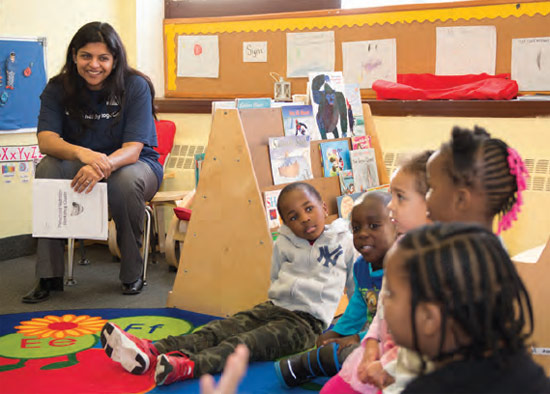Education

In the State of New Jersey, 12% of the total population, more than one million adults, have no high school diploma or the equivalent. Only 36.8% of the population has a bachelor’s degree or higher. The rate of educational attainment among the RWJBH county footprint varies widely, from Hudson County’s low 78% high school graduation rate to Monmouth County’s high 93%. According to the RWJBarnabas Health 2016 CHNA, “people with higher levels of educational attainment tend to have lower morbidity rates from acute and chronic diseases, independent of demographic and labor market factors.” This finding in the CHNA is represented in scores of research studies looking at the correlation between educational attainment and health outcomes.
A report from the U.S. Department of Health and Human Services’ Agency for Health Care Research and Quality found that, “of the various social determinants of health that explain health disparities by geography or demographic characteristics (e.g., age, gender, race-ethnicity), the literature has always pointed prominently to education.”
“Education leads to higher earnings and increased access to healthier food and safer homes. Better-educated individuals also are more likely to have a job — one with healthier working conditions, better health insurance, and higher wages.” — U.S. Department of Health and Human Services’ Agency for Health Care Research and Quality
Because education is such a key factor in health, social and economic outcomes, RWJBarnabas Health ensures that it is a key component in its programming. Conversely, the practice understands that by addressing other social determinants such as food insecurity and housing, educational outcomes improve. As a system, we take a comprehensive and integrated approach, ensuring that educational components are woven into corporate and facility strategies, as well as seeks to partner with inclusive and diverse community-based organizations that address the education priority areas, which include:
- Early Childhood Development
- Family Engagement
- Family Health Literacy
- Professional Development
Healthy Nutrition Education/ Kidsfit Expansion
The U.S. Department of Health and Human Services states that, “Health literacy includes the ability to understand basic health information and health care services to make good health choices.” KidsFit is a health and wellness program developed by RWJBH that provides nutrition and wellness education and fosters healthy lifestyle and behavior for children, families and teachers in a classroom setting. It has proven outcomes indicating positive changes in lifestyle as they relate to food and activity behavior for both child and family members.



